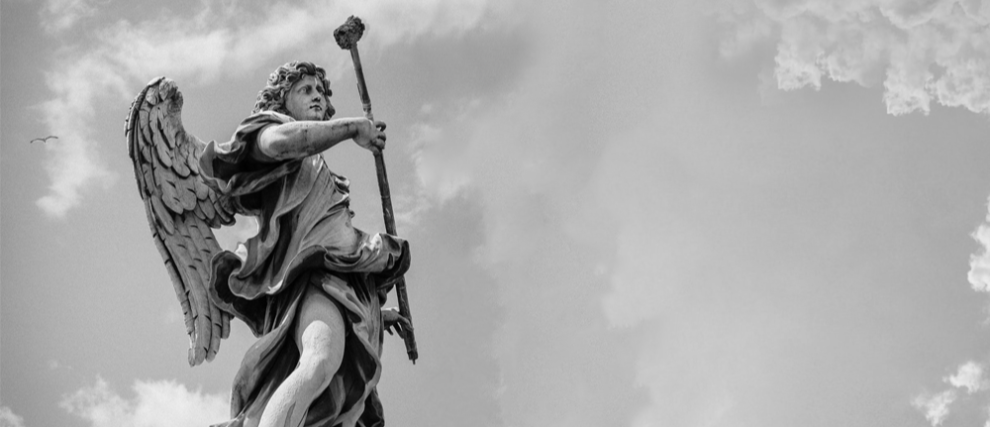Questions About Christian Life
A Christian life refers first of all to the bond we have with Christ Jesus. To live this life in fullness, in accordance with the Gospel, the Church offers us the Sacraments, including the Eucharist, source and summit of all Christian life. In addition, the beatitudes, and the universal call to holiness, are ways to live this life in abundance. So now let's dive deeper into Christian life through the lens of the Catechism of the Catholic Church.
What are the foundations of Christian life?
A personal encounter with God
The Christian life invites us to a personal encounter with God, the Catechism shows us: “Man is made to live in communion with God, in whom he finds happiness” (No. 45).
As we also saw in the article on pilgrimage, “the goal towards which the pilgrim's journey tends is first of all the encounter with God. ”
Finally, religious education, and in particular catechesis, which is an “education of the faith of children, young people and adults” (No. 5) also promotes this personal encounter with God.
The Eucharist: source and summit of Christian and sacramental life
Christian life insists on participation in the sacramental life of the Church, including the Eucharist, which is “source and summit of all Christian life” (No. 1324). All the sacraments “give birth and increase, healing and mission to the Christian's life of faith” (No. 1210). Moreover, the liturgy “involves the conscious, active and fruitful participation of all” (No. 1071). In addition to the liturgy, Christian life “is nourished by the various forms of popular piety” (No. 1679).
Adherence to the faith of the Church
Christian life presupposes adherence to the faith of the Church, especially to all that is contained in the Creed. The Trinity is “the most fundamental and essential teaching in the “hierarchy of the truths of faith,” number 234 of the Catechism reminds us. Number 259 also recalls that “the whole Christian life is a communion with each of the divine persons, without in any way separating them.” (No. 259). Finally, number 1064 shows that “The Christian's everyday life will then be the “Amen” to the “I believe” of our baptismal profession of faith.” (No. 1064).
Forgiveness: summit of Christian life
The prayer of Our Father involves forgiveness of others:
“Forgive us our trespasses as we also forgive those who have trespassed against us.”
A Christian life therefore requires forgiveness. At least that's what catechism number 2844 tells us: “Christian prayer extends to the forgiveness of enemies... Forgiveness is the fundamental condition of the reconciliation of the children of God with their Father and of men with one another.” (No. 2844).
The Inherent Cross of Christian Life
The cross is essential in Christian life: “Whoever wants to be my disciple must deny themselves and take up their cross and follow me. (Matthew 16:24).
Christian life involves the exercise of priesthood
The Christian life passes through the exercise of his baptismal or ministerial priesthood (ministerial refers to the sacrament of orders). The common priesthood of the faithful, being the one that is most exercised, since the majority of the members of the Church are laymen, passes in particular through the exercise of the triple office of priest, prophet and king.
Office of priest: The office of priest corresponds to participation in the sacramental life (including the Eucharist), in liturgical life, and in prayer.
Prayer is part of Christian life and is part of the vocation of a baptized person. Number 2591 of the Catechism names prayer as a reciprocal call between God and man: “God tirelessly calls each person to this mysterious encounter with Himself. Prayer unfolds throughout the whole history of salvation as a reciprocal call between God and man.” (No. 2591).
Office of prophet: numbers 904 and 905 recall the participation of the laity in the prophetic office of Christ: “Lay people also fulfill their prophetic mission by evangelization, “that is, the proclamation of Christ by word and the testimony of life.” (No. 905).
Office of king: following Christ the Servant, each baptized person is called to serve. That's what catechism number 786 mentions: “Finally, the People of God shares in the royal office of Christ. He exercises his kingship by drawing all men to himself through his death and Resurrection. Christ, King and Lord of the universe, made himself the servant of all, for he came “not to be served but to serve, and to give his life as a ransom for many.” For the Christian, “to reign is to serve him,” particularly when serving “the poor and the suffering, in whom the Church recognizes the image of her poor and suffering founder.” The People of God fulfills its royal dignity by a life in keeping with its vocation to serve with Christ.” (No. 786).
Holiness
As we have seen in several articles and in our guide, to be a Christian is to respond to the universal call to holiness. This call is highlighted in the Catechism: “The call to the fullness of Christian life and to the perfection of charity is addressed to all those who believe in Christ, regardless of their state or rank. All are called to holiness: “Be perfect as your heavenly Father is perfect.” (No. 2013).
The vocation to holiness is taken up in various other magisterial documents, such as Lumen Gentium, the dogmatic constitution on the Church of the Second Vatican Council, or the apostolic exhortation on the call to holiness Gaudete et exsultate.
The Christian life: a path of life in God and Spirit
The Christian life can be seen as a path of life in Christ and in the Spirit.
The third part of the Catechism is entitled “Life in Christ”, and its first section “The Vocation of Man: Life in the Spirit”, and we can see the Christian life as a path of life in Christ and in the spirit. Of course, we could also have added a path of life in God the Father, since the latter is inseparable from the Son and the Spirit. We will talk in particular about the beatitudes, freedom, and the formation of conscience, as a path for Christian life.
Beatitudes: path of Christian life
The beatitude is a path of Christian life, since it brings us to participate in the divine nature and in eternal life, Catechism number 1721 tells us.
In addition, numbers 1726 and 1728 illuminate the beatitudes as a path of Christian life: “The Beatitudes teach us the final end to which God calls us: the Kingdom, the vision of God, participation in the divine nature, eternal life, filiation, rest in God.” (No. 1726). “The Beatitudes confront us with decisive choices concerning earthly goods; they purify our hearts in order to teach us to love God above all things.” (No. 1728).
The Path to Human Freedom
A Christian life requires, in particular, a good use of freedom. Defined as “Freedom is the power to act or not to act, and so to perform deliberate acts of one's own. Freedom attains perfection in its acts when directed toward God, the sovereign Good,” Catechism number 1744 shows us.
However, it can decrease the responsibility for an action because of “ignorance, violence, fear and other psychic or social factors.” (No. 1746).
The Christian life, a path to educate one's conscience
Christian life is also a path to “take the means to form one's conscience” (No. 1798), and that this education is “a task of all life” (No. 1784).
That which goes against the vocation of man
Wanting to live without God, sin and forms of divination go against the vocation of man.
Wanting to live without God
Since man “lives a fully human life only if he freely lives by his bond with God,” (No. 44), and that he is “made to live in communion with God in whom he finds happiness” (No. 45), we can say that wanting to live without God goes against the vocation of man, “who is by nature and vocation a religious being,” number 44 of the Catechism of the Catholic Church reminds us.
Sin
Sin turns us away from God, and so it goes against the vocation of man, even if every man is a sinner. However, there are sins that go more against the vocation of man: these are those that can be described as mortal, as opposed to venial sins. Number 1855 of the Catechism shows that mortal sin turns man away from God by a serious offense: “Mortal sin destroys charity in the heart of man by a grave violation of God's law; it turns man away from God, who is his ultimate end and his beatitude, by preferring an inferior good to him.” (No. 1855).
In general, what goes against the vocation of man is the “non-observance” of the 10 commandments. An elaboration on the 10 commandments is found in the second section of the third part of the Catechism of the Catholic Church.
Forms of Divination
The Catechism of the Catholic Church explains in number 2116 that “All forms of divination are to be rejected: recourse to Satan or demons, conjuring up the dead or other practices falsely supposed to “unveil” the future. (see Deuteronomy 18:10; Jeremiah 29:8).” (No. 2116).
Among the forms of divination to be rejected, this number of the Catechism mentions:
· Consultation of horoscopes
· Astrology
· Palmistry
· The interpretation of omens and spells
· The phenomena of clairvoyance
· The use of mediums
These practices “conceal a desire for power over time, history and finally over men at the same time as a desire to reconcile the hidden powers. They are in contradiction with the honor and respect, mixed with loving fear, that we owe to God alone, “adds this number.
With Hozana, let us pray to live this Christian life to the fullest!
With Hozana, let us pray to live this Christian life to the fullest. Hozana offers you some ways to live this life in abundance, such as
, or more involved .
